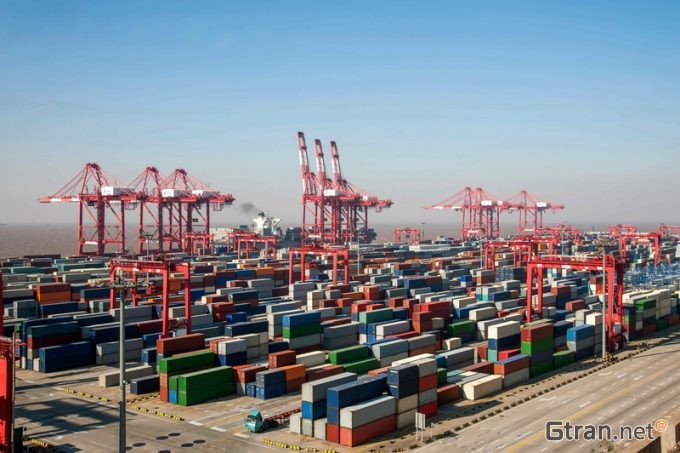Container depots in China are full and having to turn away new customers, following a slowdown in exports.

Container xChange CEO and co-founder Christian Roeloffs said: “We hear from many customers that the demand for containers is still there, just that the supply is overshooting the demand.
Due to this, we see ripple effects, such as depots working at maximum capacity and not being able to accept new clients.”
Container xChange’s latest report suggests China’s container depots are working at 90% utilisation, adding: “Oversupply makes it harder for the depots to move boxes. And because depots make money by moving these boxes, as opposed to storing them, the current circumstances are rendering the depots inefficient in both operations as well as revenue generation.”
The increasing number of idle containers at terminals does not only mean ports are getting congested, but repositioning empty containers has become more expensive and inconvenient, making it difficult for the NVOCCs and shipping lines to open new markets globally.
The expected rebound in China’s exports after the lunar new year holiday in January didn’t materialise, a situation reflected in container freight rates. Drewry’s composite World Container Index decreased 2%, to $1,756.83 for a 40ft container on 23 March. This is 83% below the peak of $10,377 in September 2021 and 35% lower than the 10-year average of $2,690. It indicates a return to more normal prices, although 24% higher than 2019’s pre-pandemic average of $1,420.
Meanwhile, Container xChange has noted decreasing container prices, another effect of oversupply. The average price for a 40ft container on its platform was between $1,500 and $1,700 in most parts of Asia.
The container glut has, reportedly, caused trucking companies to lay off drivers. Sources told The Loadstar box movements in China’s busiest ports of Shanghai, Ningbo and Shenzhen were less than 80% of pre-Covid-19 levels, resulting in less work for truckers.
One source said: “Wages have been cut by 30%. On good days, you could see as many as 10,000 trucks a day around the ports, but today you see just several hundred on the roads.”
A recent podcast by the Freight Buyers’ Club reported uncertainty about China’s role as a manufacturing hub amid tensions with the US could cause manufacturers and retailers to take another look at their sourcing options.


